2000s: Memorable MLB Performances
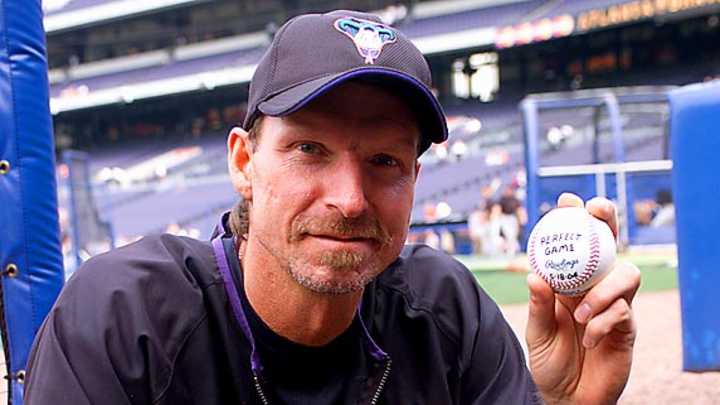

Johnson's greatness can be seen throughout the decade, whether it's his 20-strikeout game in May 2001, his two 17-K efforts in 2002 or his dominant outings in Game 1 of the NLCS and Game 2 of the World Series in October 2001. But his best game, a perfect game, was the decade's best. The oldest man ever to throw a perfect game, the 40-year-old Johnson struck out 13, and only once fell into a three-ball count while facing a Braves lineup that included Chipper Jones, Andruw Jones and J.D. Drew.
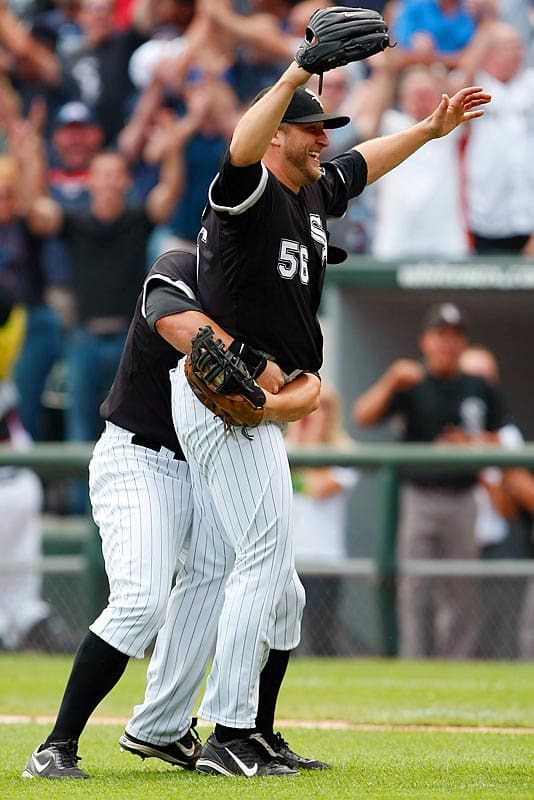
Buehrle threw the only other perfect game of the decade when he beat a strong Rays team in '09. In doing so, he became the only pitcher to throw two no-hitters in the decade. In his first, against the Rangers in `07, he also faced the minimum 27 batters. The only Ranger to reach base was Sammy Sosa, who walked and was promptly picked off first by Buehrle. A pitcher faced the minimum 27 batters in nine innings 10 times in the decade, but the White Sox left-hander was the only man to do it more than once.
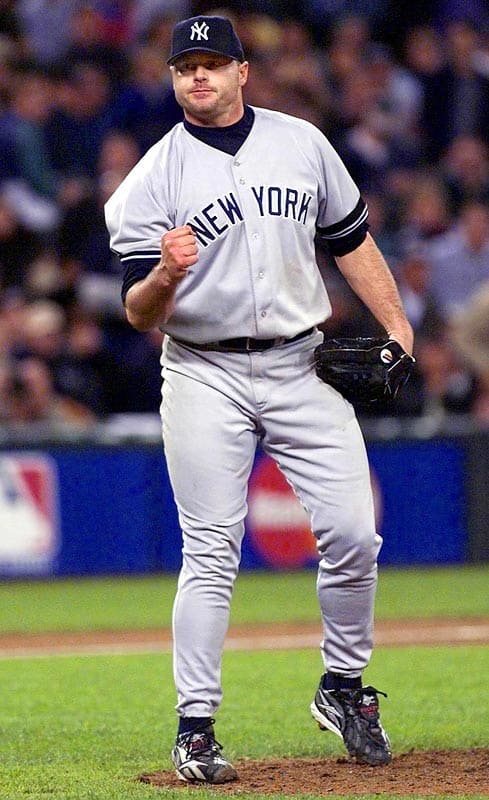
With the Yankees leading the Mariners 2-1 in the series, Clemens turned in a dominant performance, allowing just a double (by Al Martin) and two walks while striking out 15 and not allowing a runner to reach third base. His resulting 98 Game Score (which measures a pitcher's dominance) remains the highest in postseason history.
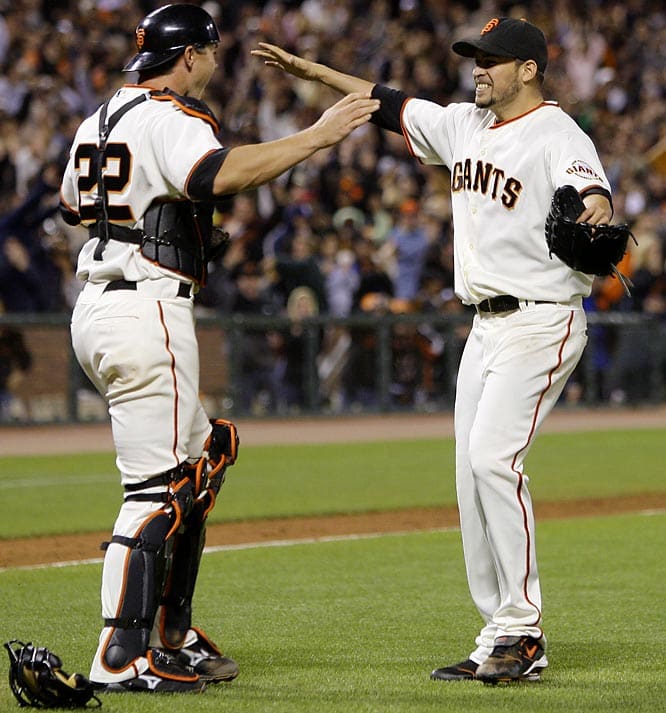
There were 15 no-hit games thrown in the decade, but not all were created equal. Sanchez was the only pitcher in the decade to complete nine innings without a hit, walk, or hit by pitch yet not register a perfect game. All that kept the Giant from recording the third perfecto of the decade was an error by third baseman Juan Uribe with one out in the eighth. True, Sanchez did it against a weak Padres team and needed a spectacular catch from center fielder Aaron Rowand in the ninth, but he also struck out 11, the third-best total among the decade's no-nos.
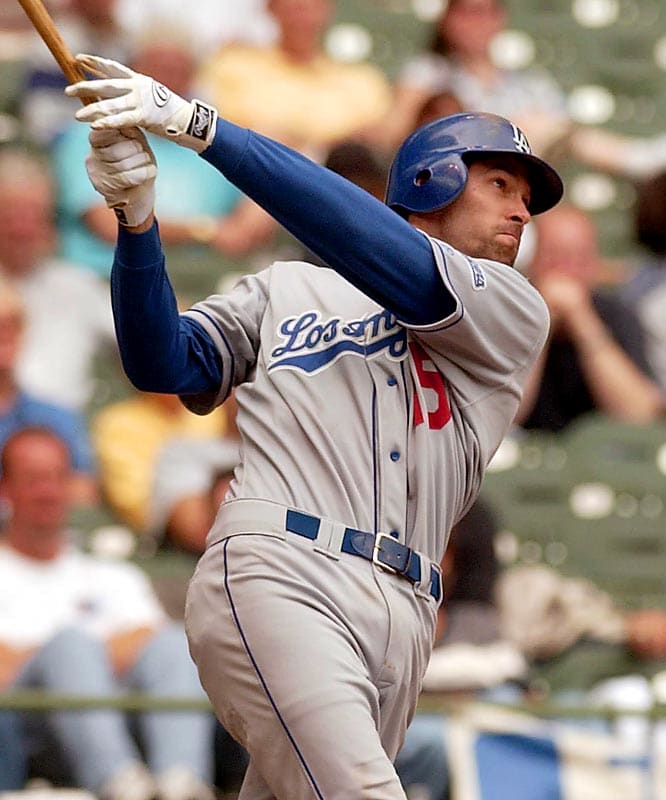
The best hitting performance of the decade came when Green set the record for most total bases in a nine-inning game with 19, becoming the first player to collect two other hits in a four-homer game. Green's night went: RBI double, three-run homer, solo homer, solo homer, single, solo homer, the last coming with two outs in the ninth inning of the Dodgers' 16-3 blowout of the Brewers.
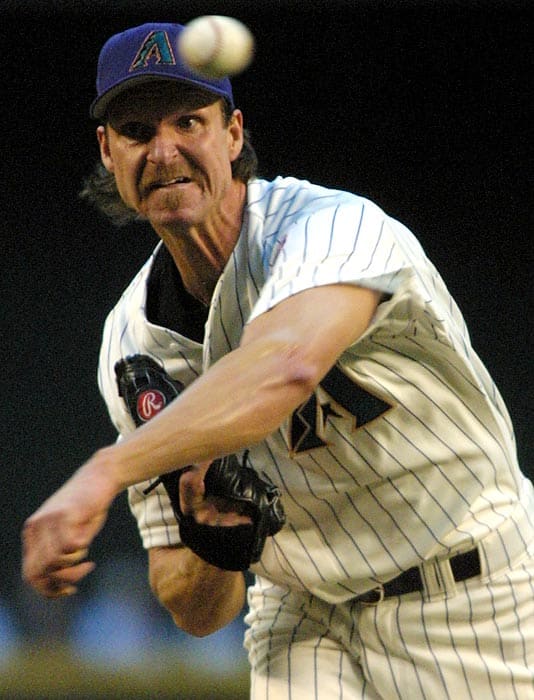
Johnson became the third pitcher to strike out 20 in nine innings when he dominated the Reds. He struck out 10 different batters, getting every man he faced at least once and all but one of the Cincinnati starters at least twice while walking no one and limiting the Reds to one run on three singles. Amazingly, Reds starter Chris Reitsma matched Johnson for eight innings despite striking out just two, handing Johnson a no-decision after nine innings and 124 pitches in a game won by Arizona 4-3 in the 11th.
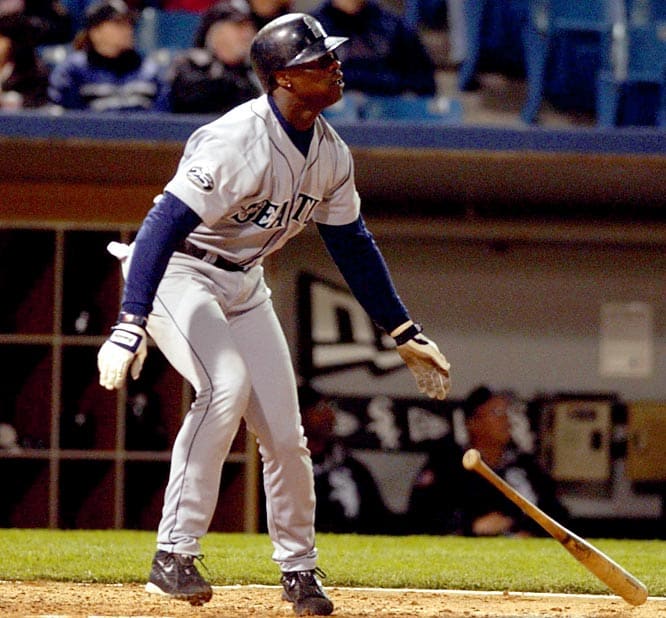
There have been 13 four-homer games since 1932, including two this decade. Cameron (pictured) started his night on May 2, 2002, with a pair of solo shots in Seattle's 10-run first inning against the host White Sox and added two more solo shots in his next two turns. Cameron was hit by a pitch in his fifth AB, but got one more chance to become the first man to hit five home runs in a single game in the ninth. He came close, flying out to deep right field. A little more than a year later, Toronto's Delgado (Sept. 25, 2003) came to the plate only four times against Tampa Bay, but homered each time, following a three-run shot with a trio of solo homers in what amounted to the hitter's version of a perfect game.
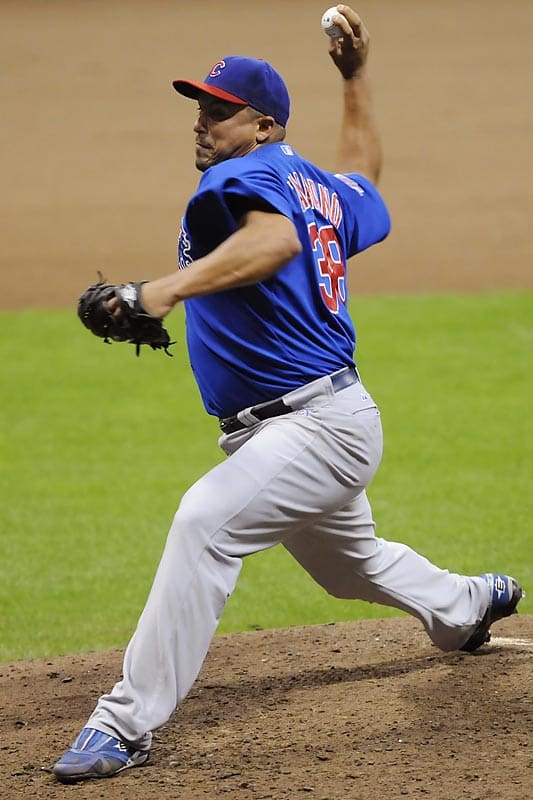
Other than Jonathan Sanchez and Mark Buehrle, only two men fell just one baserunner shy of perfection during the decade yet still completed a no-hitter. Lowe and Zambrano (pictured) both issued one walk and faced 28 batters in the process of throwing their no-nos, though Zambrano's, against the Astros (Sept., 14, 2008), came against a tougher lineup than Lowe's, against the Rays (April 27, 2002). Zambrano's came at a neutral site; the game was relocated from Houston to Milwaukee's Miller Park due to Hurricane Ike.
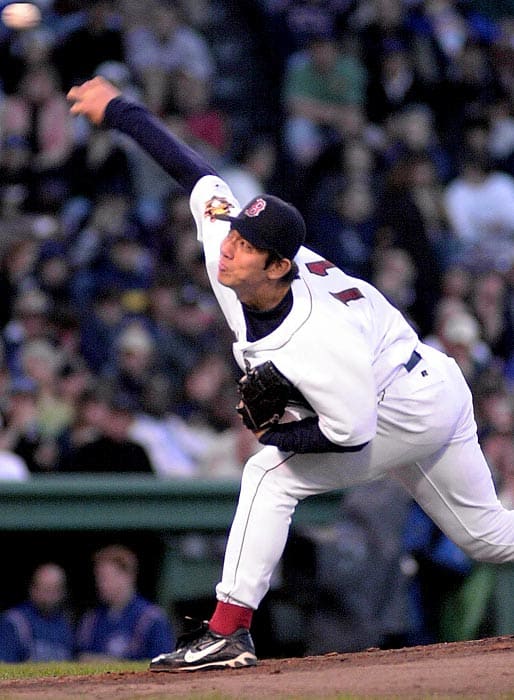
Three other men came within one runner of perfection in the decade, but with that one runner reaching base via a hit. Perez's one-hitter (April 25, 2002) for the Dodgers was the least impressive of the three because of his comparatively low strikeout total (six), but he erased his one Cubs runner via a double play and thus faced the minimum of 27. Nomo's (pictured) one hit, against the Blue Jays (May 25, 2001), was a double, but he led the trio with 14 strikeouts. Mussina's game (Sept. 2, 2001), was the most stirring. The only run of the game, a duel between Mussina (13 Ks) and ex-Yankee David Cone at Fenway, was scored by New York in the top of the ninth, and the lone hit Mussina allowed, a single by pinch-hitter Carl Everett, came with two outs in the ninth.
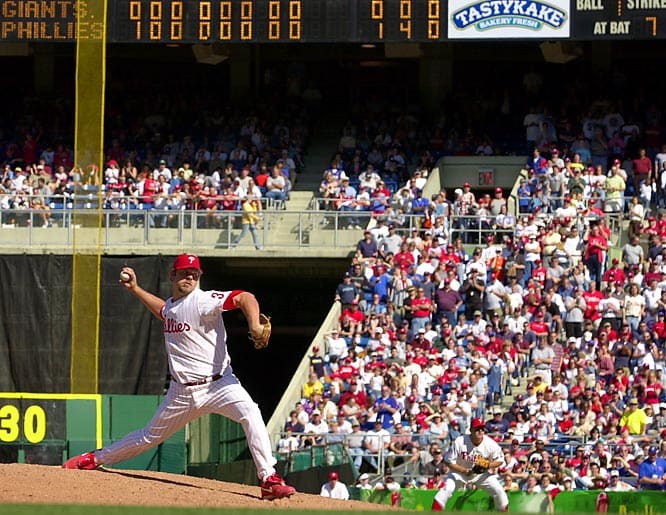
These five no-nos all saw 29 (Millwood, Lester) or 30 men come to the plate and between nine and 12 strikeouts (Verlander had the dozen). If Mark Buehrle, Jonathan Sanchez, Derek Lowe and Carlos Zambrano all threw near-perfect games, and Bud Smith, Anibal Sanchez and A.J. Burnett (who combined for 17 walks, nine by Burnett, in their no-nos) were all shaky by no-hitter standards, these five fit neatly in between those two extremes.
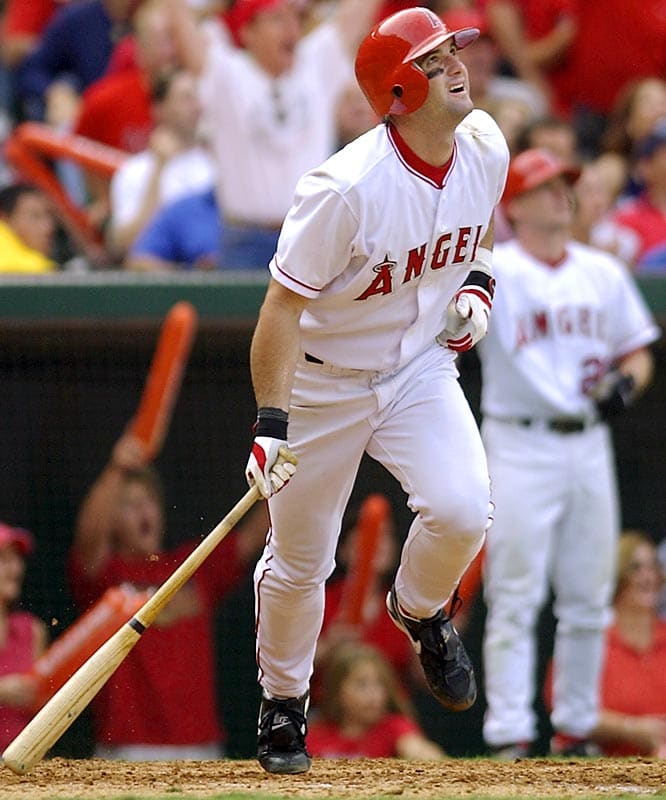
Only five players have hit three home runs in a postseason game. Babe Ruth did it twice. Three men did it in the '70s, two of them Hall of Famers and the third Pirates slugger Bob Robertson. The fifth, Kennedy, did it against the Twins in '02. Batting ninth, Kennedy connected for solo homers off Joe Mays in his first two at-bats, the latter giving the Angels a 3-2 lead, but the Halos had fallen behind again by the time Kennedy came up against sophomore reliever Johan Santana in the seventh. With his team down by two runs, Kennedy connected for a three-run shot, driving Santana from the game and igniting a 10-run inning during which Kennedy later singled and scored in his fourth and final at-bat of the game.
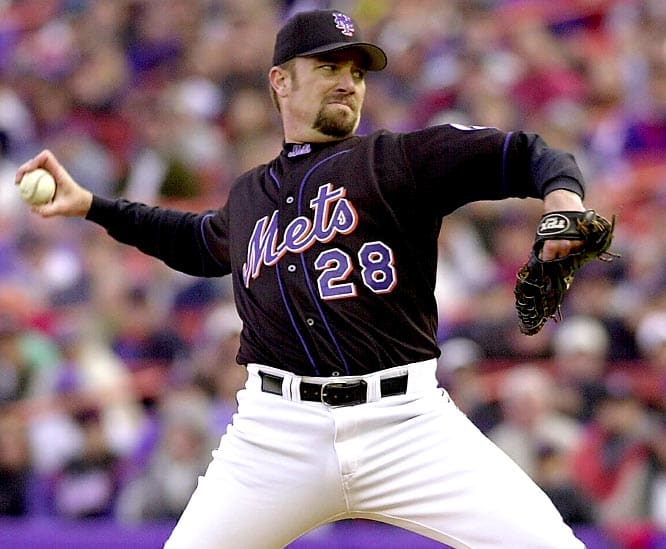
After Roger Clemens' one-hit, 15-strikeout gem at Seattle, these were the most dominant postseason outings of the 2000s. Jones' effort for the Mets (2000 NLDS Game 4 vs. Giants) was the only other postseason one-hitter of the decade. The games by Johnson (2001 NLCS Game 1 vs. Braves and World Series Game 2 vs. Yankees) and Beckett (2003 NLCS Game 5 vs. Cubs) each netted 11 strikeouts, one walk and no runs. Beckett gave up two hits to the Cubs, Johnson three each to the Braves and Yankees, and all eight hits were singles. Beckett's shutout of the Yankees in Game 6 of the 2003 World Series was a tick below the others (he allowed five hits and walked two), but it earns mention for coming in a championship-clinching game.
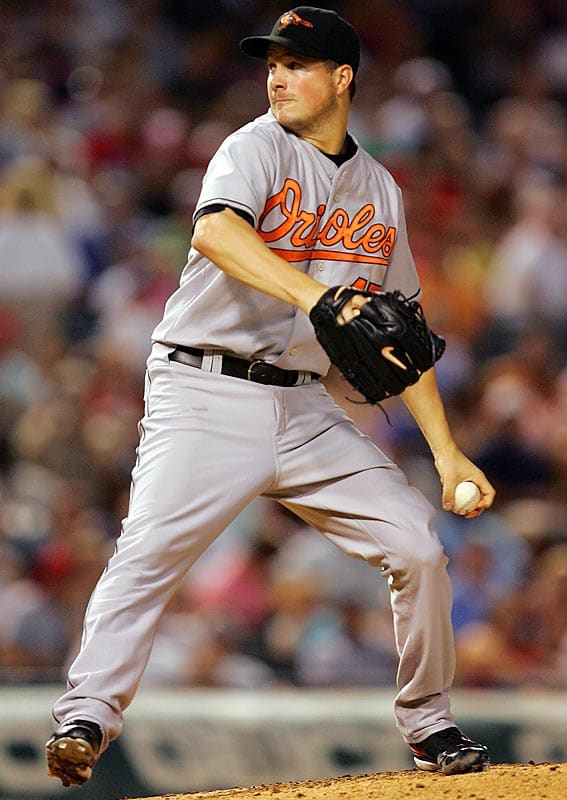
Of the eight pitchers to face the minimum 27 batters in a nine-inning game in the '00s, Bedard was the one who recorded the most strikeouts, sitting down 15 Rangers with only leadoff man Jerry Hairston Jr. avoiding strike three. Bedard walked none and allowed just two singles, on both occasions getting a double-play grounder from the very next batter and thus not allowing a runner past first base.
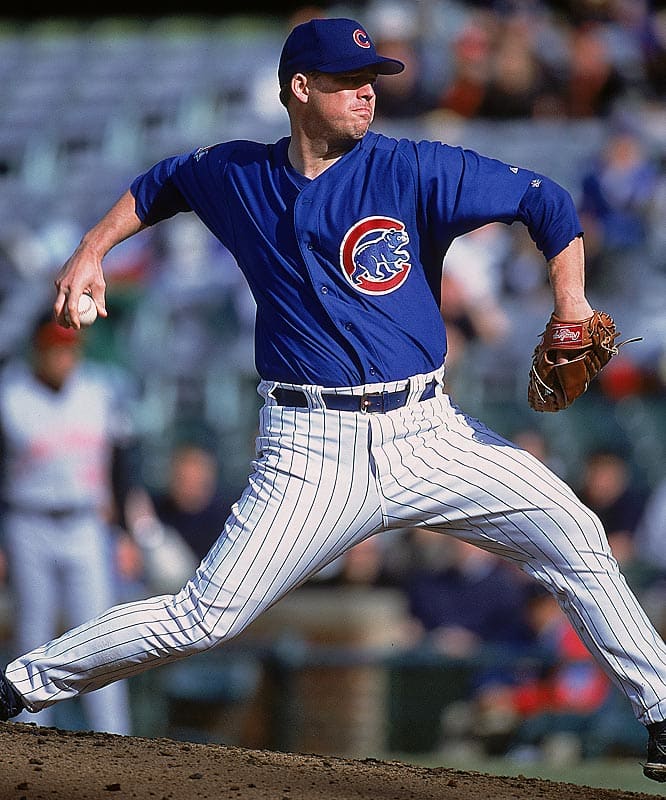
The Cub faced the minimum 27 batters on his way to a one-hit shutout in a game that took just one hour and 48 minutes. The only man to reach base against Lieber was weak-hitting Juan Castro, who oddly reached twice, on a single and a walk, but was erased by a double play off the bat of the next batter both times. Lieber struck out just two and, before the ninth inning, reached only two two-ball counts. He didn't throw a ball three until the ninth, when he went full on the game's final two batters.
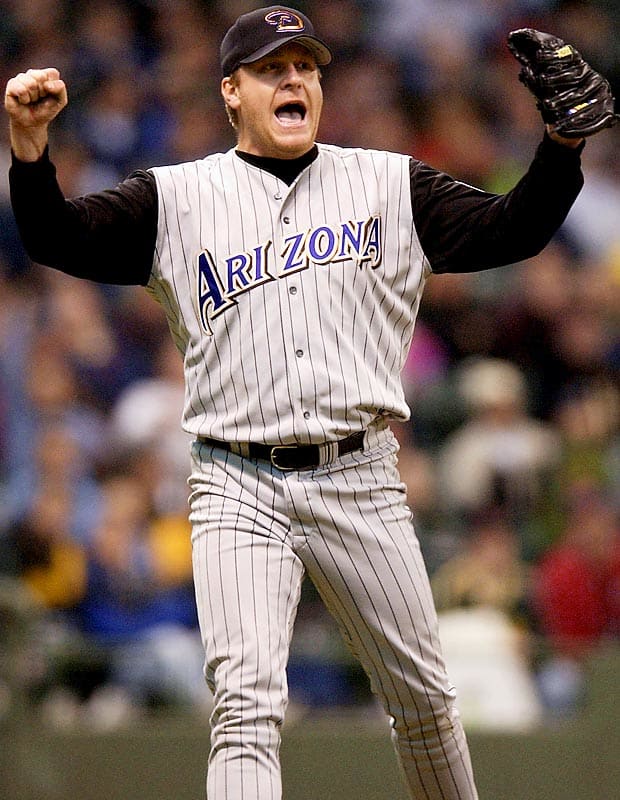
Only twice in the decade did a pitcher achieve a triple-digit Game Score. Randy Johnson did it with his perfect game, and two years earlier, his rotation mate Schilling did it with a 17-strikeout one-hitter against the Brewers. Schilling walked two batters, one of whom was caught stealing, but the only hit he allowed was a single by Raul Casanova, who was also the only Brewers starter not to strike out. No Brewer got past first base.
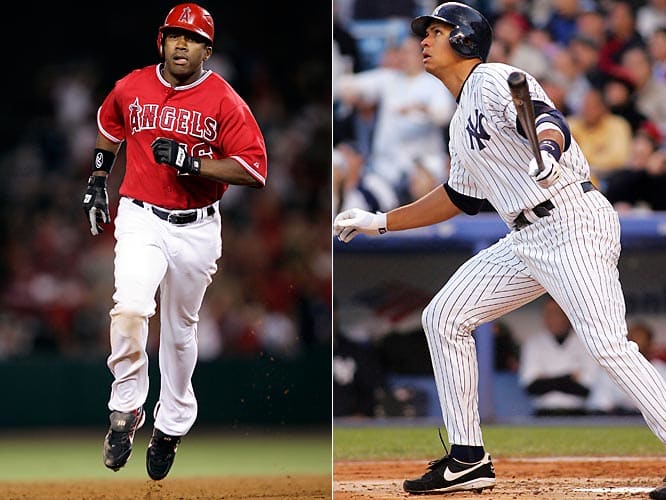
Two players had 10-RBI games in the decade. Rodriguez did it first, on April 26, 2005, jumping all over that year's AL Cy Young award winner, Bartolo Colon, with home runs in the first, third and fourth innings at Yankee Stadium. He then added an RBI single in the sixth before falling just short of a fourth homer and 11th RBI with a lineout to deep center in the eighth. On Aug. 21, 2007, Anderson keyed an 18-9 Angels win over the Yankees in Anaheim by scoring three runs on a pair of doubles in his first two trips, then connecting for a three-run homer and, after a groundout, a grand slam in the sixth before grounding out again in his final at-bat.
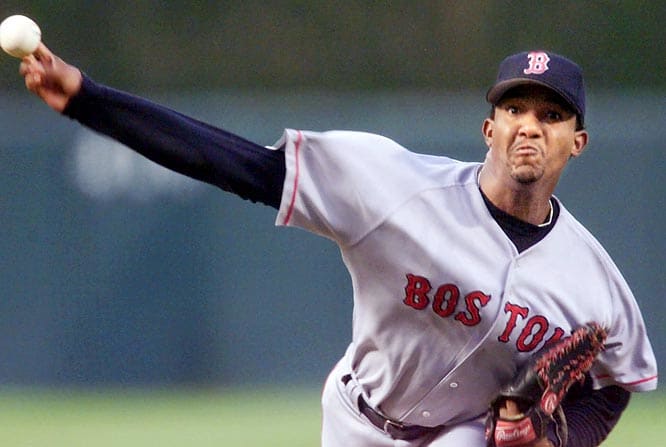
In 2000, Martinez was still the best pitcher the game and proved it with this pair of shutouts in which he struck out a combined 28, walked none and allowed just three hits. In the first game, against the Orioles, Pedro struck out 15, including every player in the Baltimore lineup, while allowing only fifth-inning singles to Albert Belle and Jeff Conine. No Oriole reached in any of the other eight innings. In the latter game, Martinez hit Gerald Williams with a pitch to lead off the bottom of the first, inciting a brawl, but set the next 24 men down in order until John Flaherty singled to start the ninth. Martinez struck out 13.
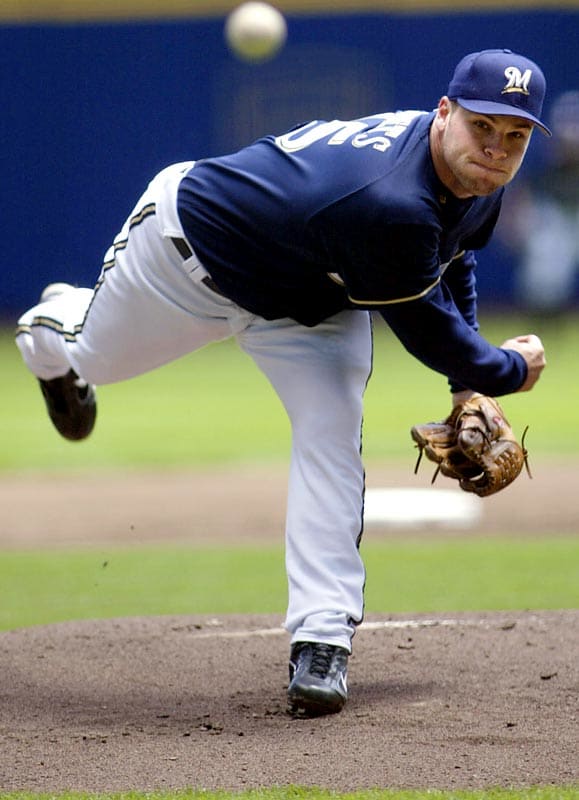
Randy Johnson was the only pitcher with more single-game strikeouts in the '00s than Sheets, who fanned 18 Braves just two days before Johnson pitched a perfect game against that same Atlanta team. Second baseman Nick Green, who singled and walked while subbing for the injured Marcus Giles, was the only Braves starter to avoid strike three. The only other Braves to reach base were Dewayne Wise, who doubled, and Andruw Jones, who homered in the seventh of Milwaukee's 4-1 win.
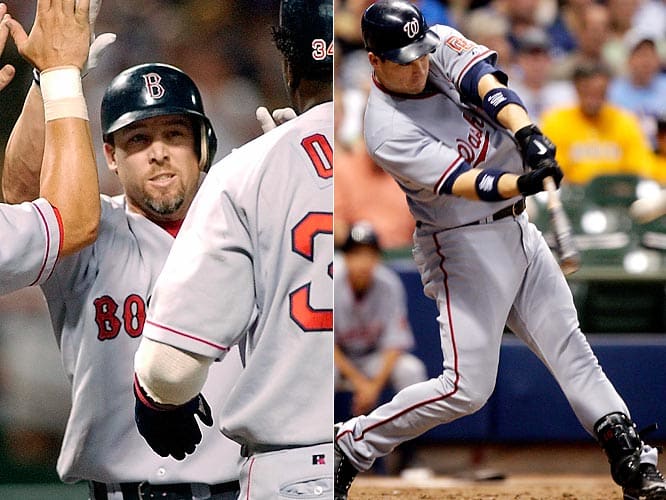
Mueller and Willingham became the 12th and 13th players, respectively, to hit two grand slams in one game. Mueller (July 29, 2003) was already 1-for-3 with a solo home run when, batting right-handed, he hit a seventh-inning slam off the Rangers' Aaron Fultz to give the Red Sox a two-run lead, then padded that lead with another homer off Jay Powell as a left-handed batter in the next inning. That made Mueller the first player to hit grand slams from both sides of the plate in a game. Willingham (July 27, 2009) was 1-for-2 with a double when he hit his first off the Brewers' Jeff Suppan in the fifth, also giving his team a two-run lead, which he also padded in the next inning with a second homer, off Mark DiFelice.
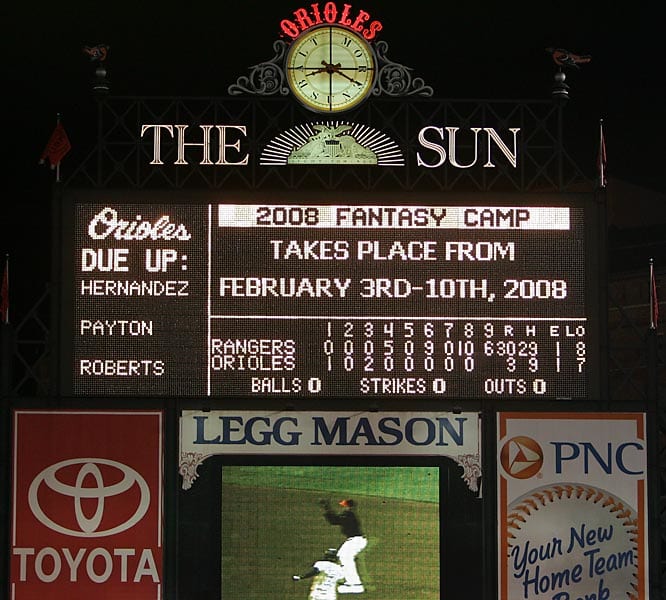
The Rangers set an AL record by scoring 30 runs at Baltimore. Amazingly, the Orioles led 3-0 heading into the fourth. The Texas rally started with Jarrod Saltalamacchia's two-run fourth-inning single, and Ramon Vazquez made it 5-3 with a three-run homer. That score held until the sixth when the Rangers exploded for nine runs off Daniel Cabrera, Brian Burres and Rob Bell. They scored 10 more off Bell and Paul Shuey in the eighth; Saltalamacchia capped the inning with his second homer of the game. The final six runs came against Shuey in the ninth, with Vazquez finishing things off with another three-run shot. Texas hit six home runs, with Travis Metcalf and Marlon Byrd adding grand slams, and Saltalamacchia and Vazquez driving in seven runs apiece.
